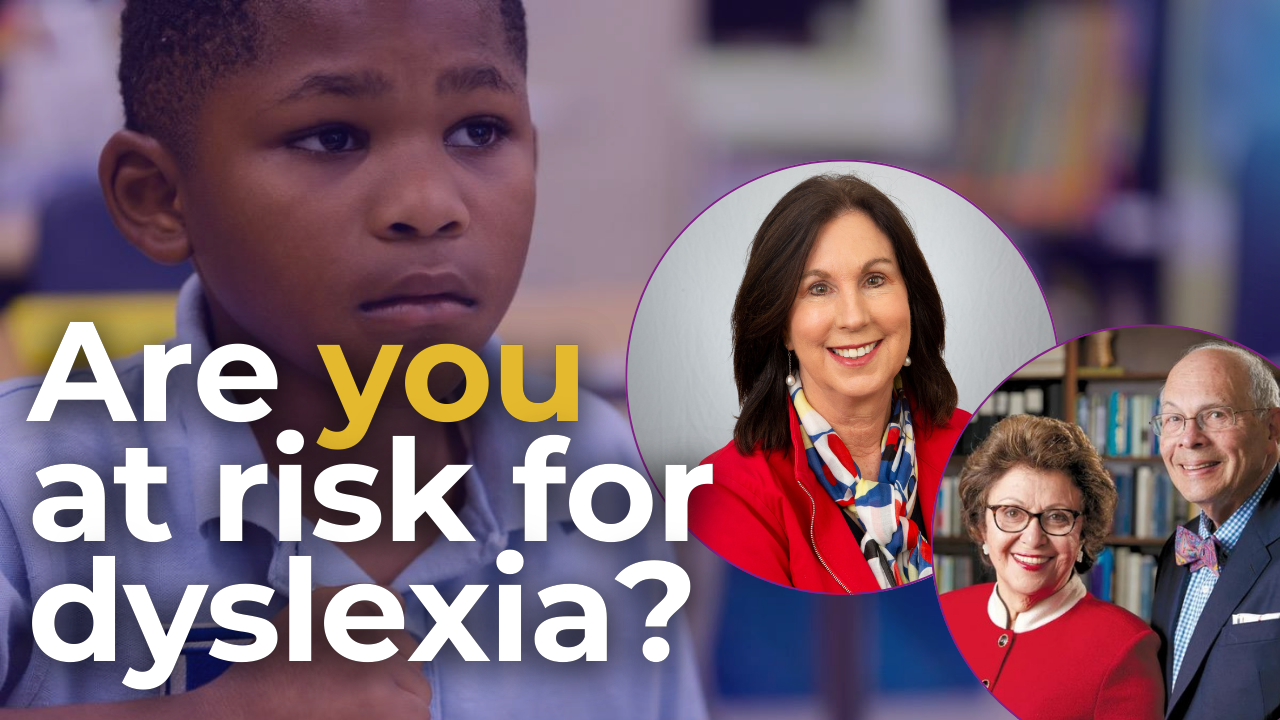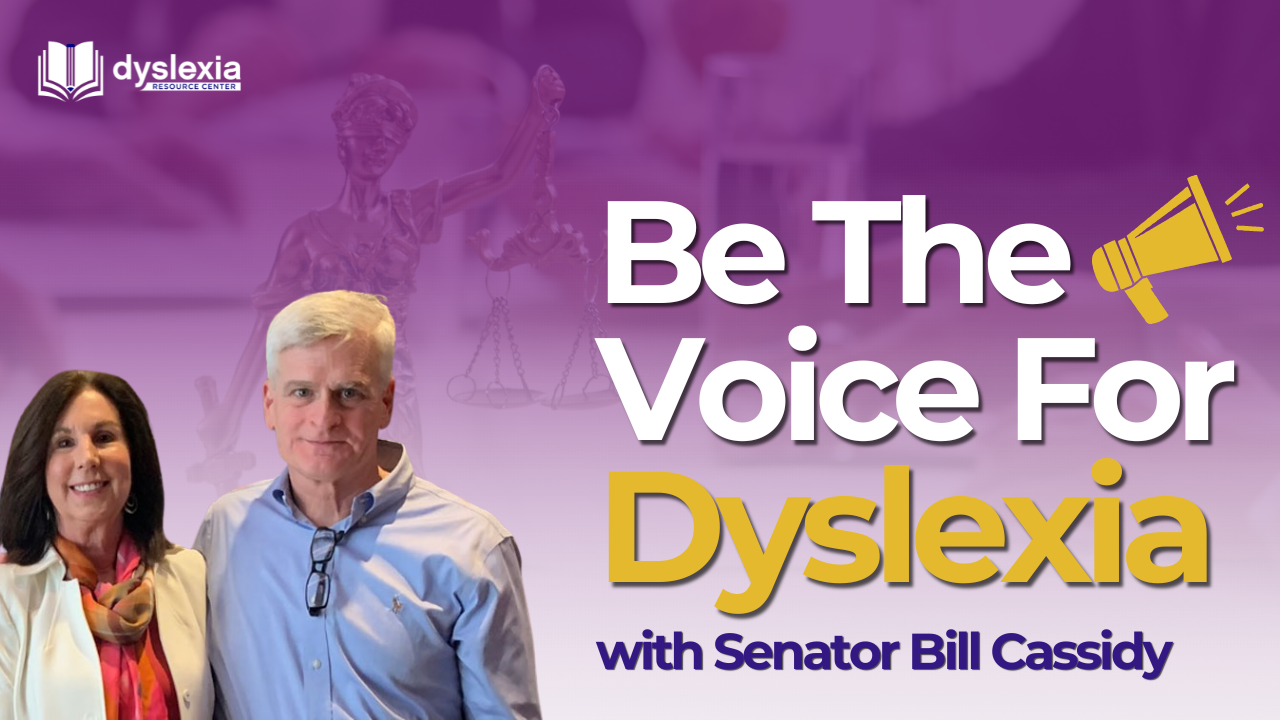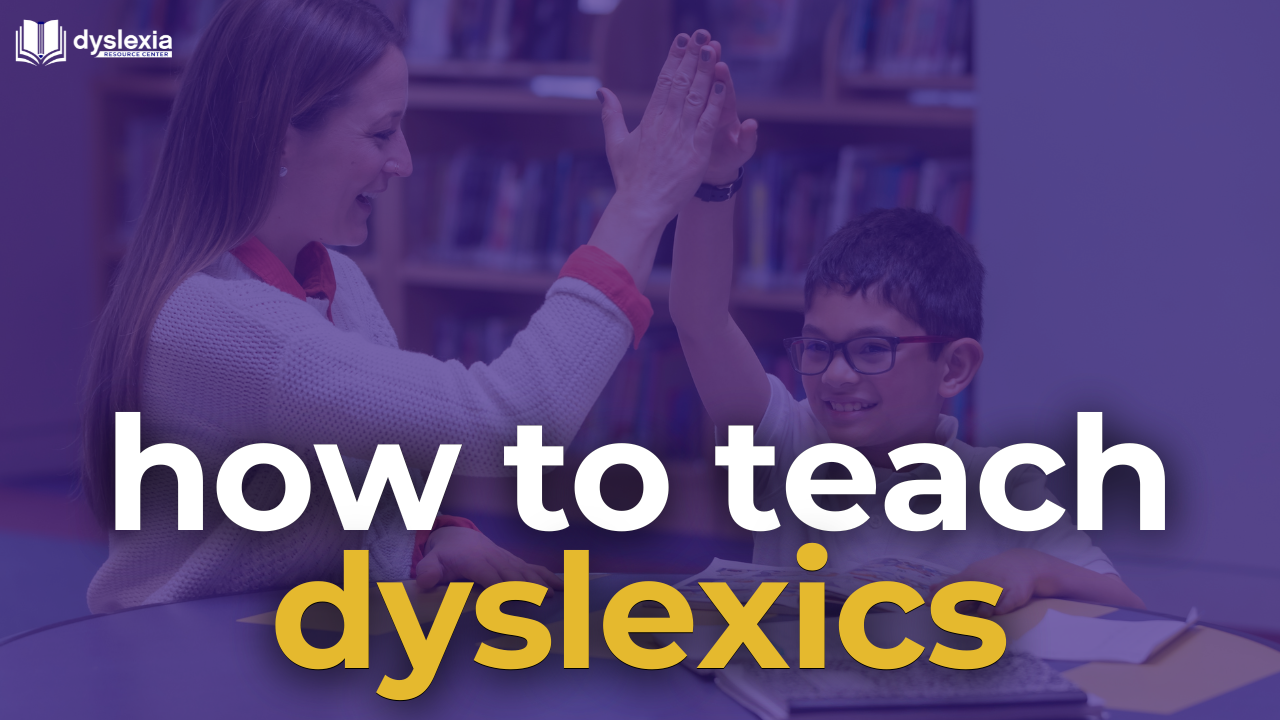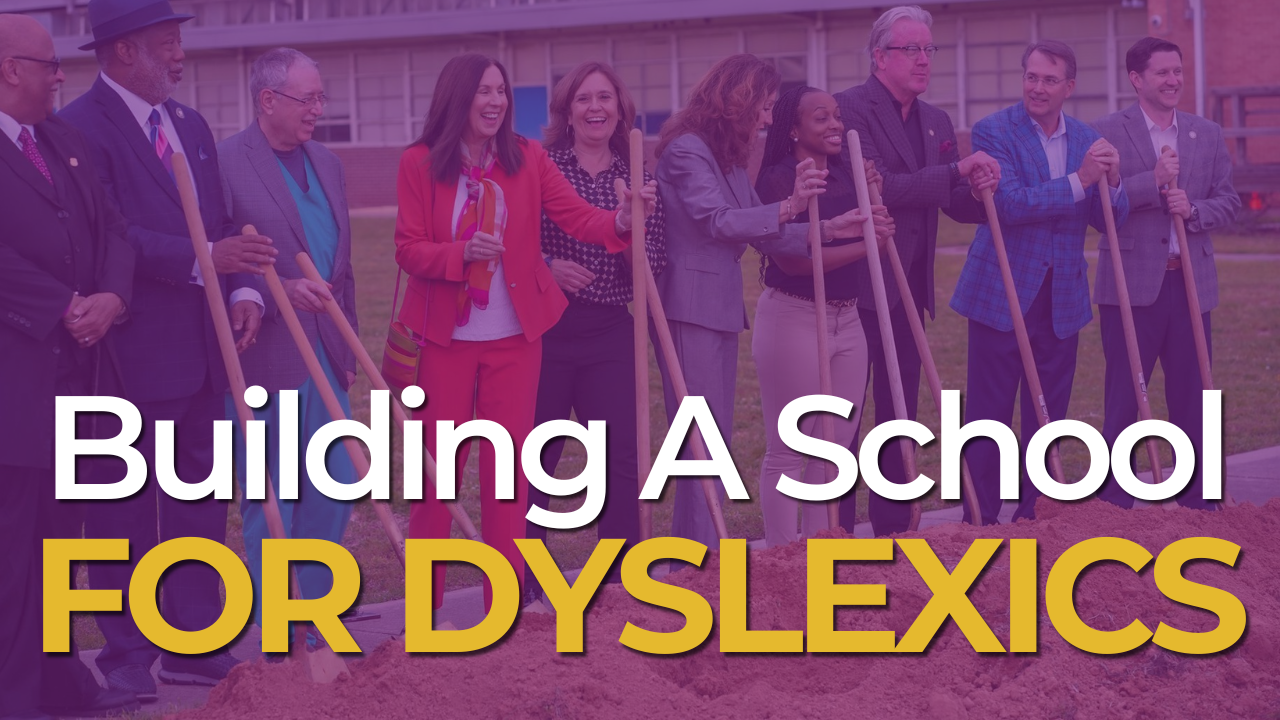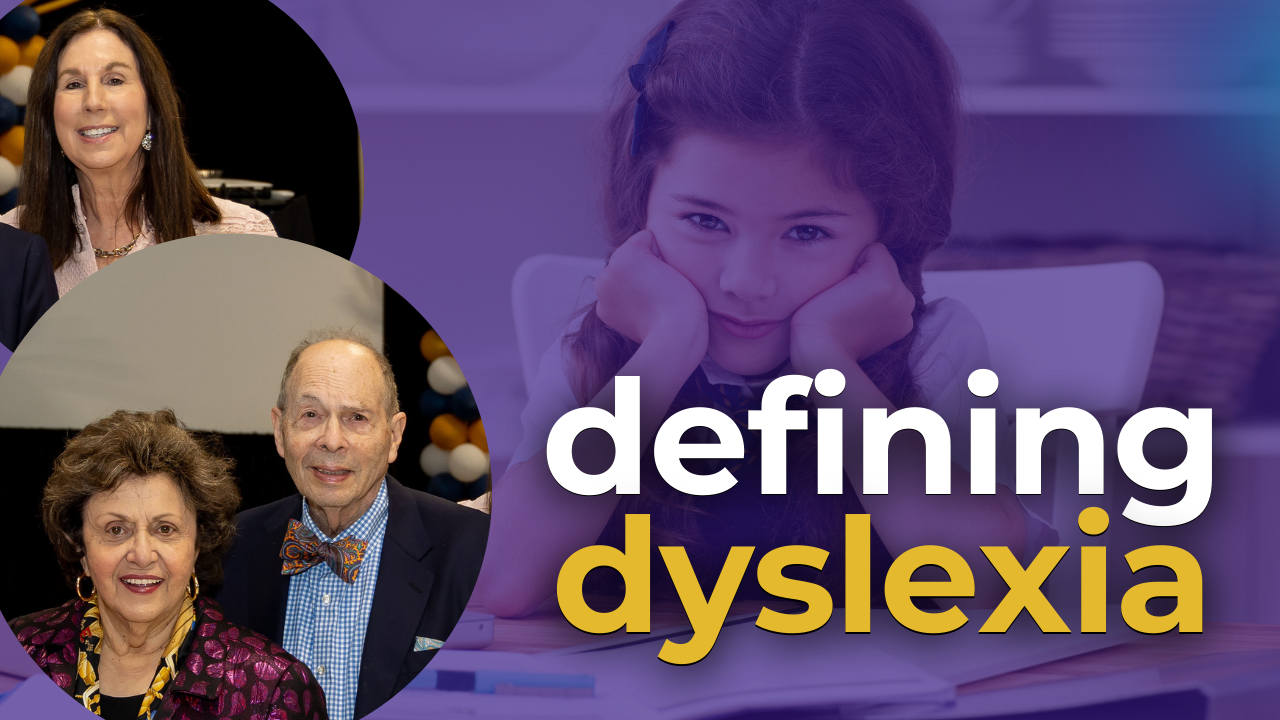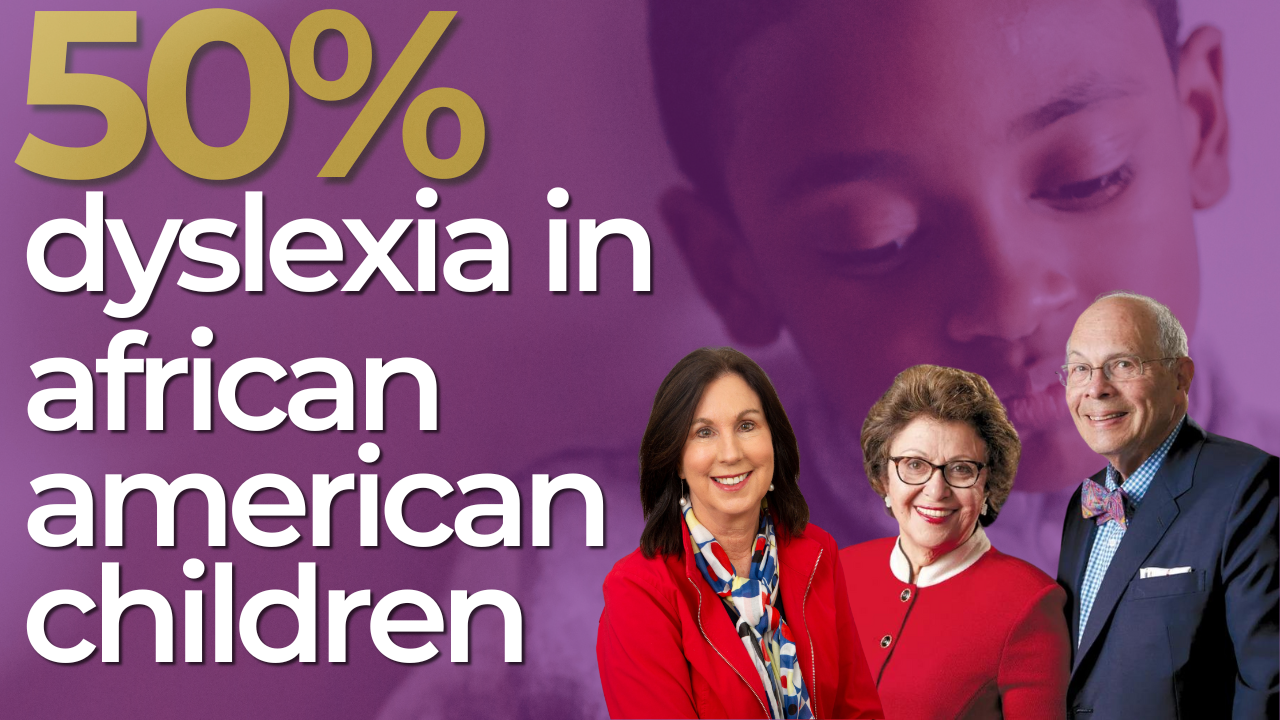Call Us (225) 384-5484
Episode 9: Dyslexia in African Americans with Drs Bennett and Sally Shaywitz
In a recent podcast interview, Dr. Laura Cassidy spoke with esteemed dyslexia experts Drs. Bennett and Sally Shaywitz about a crucial issue facing the dyslexia community: the exclusion of economically disadvantaged children from being identified as dyslexic under current educational laws.
This discussion highlighted the ongoing legislative efforts to amend the Individuals with Disabilities Education Act (IDEA) and ensure that all children, regardless of their economic background, receive the support they need.
The Problem with the Current IDEA Definition
Dr. Bennett Shaywitz pointed out a significant flaw in the 2004 IDEA definition, which explicitly excludes children with socioeconomic disadvantages from being classified as having dyslexia. This exclusion means that many children who struggle with reading due to dyslexia are not being identified or receiving the necessary interventions, simply because they come from low-income backgrounds.
Dr. Sally Shaywitz emphasized that dyslexia is not a condition influenced by cultural or economic factors but is a neurobiological disorder. Despite this, the current legal framework allows schools to attribute reading difficulties to poverty rather than recognizing dyslexia. This misidentification prevents countless children from accessing the specialized instruction and resources they need to succeed academically.
Legislative Efforts for Change
The podcast highlighted legislative initiatives in both the U.S. Senate and House of Representatives aimed at rectifying this issue. These proposed laws seek to remove the socioeconomic exclusion from the IDEA definition of dyslexia, ensuring that all children struggling with reading are properly diagnosed and supported.
Dr. Sally Shaywitz underscored the importance of this legislative change, stating, "We are depriving so many children of their future, and our country's future, by not identifying them." Dr Bennett Shaywitz further noted that data from the National Assessment of Educational Progress (NAEP) shows that many children reading below the basic level are indeed dyslexic but have not been identified due to their economic status.
The Impact of Misidentification
Dr. Sally Shaywitz elaborated on the severe consequences of not identifying dyslexia in economically disadvantaged children. Without a proper diagnosis, these children often suffer from low self-esteem and may exhibit behavioral problems to avoid reading tasks. The failure to recognize and address dyslexia can lead to a cycle of academic struggle and misbehavior, which further impedes their educational progress and personal development.
One poignant example shared by the Shaywitzes was the high prevalence of dyslexia among prison inmates. Research indicates that approximately half of the prison population is dyslexic, yet many of these individuals were not diagnosed until they were incarcerated. This stark statistic highlights the critical need for early identification and intervention to prevent long-term negative outcomes.
The Importance of Early Identification and Intervention
The experts stressed that identifying dyslexia early and providing appropriate interventions can significantly improve educational outcomes for affected children. Dyslexia is a phonological deficit, and targeted interventions can help children develop the necessary reading skills. By recognizing and addressing dyslexia, educators can help students build their self-esteem and achieve their full potential.
Dr. Laura Cassidy concluded the discussion by emphasizing the moral and practical imperatives of inclusive dyslexia identification: "We are hurting their self-esteem and impeding their academic progress by not identifying them. It's crucial to understand that dyslexia is not a marker of intelligence. Children with dyslexia are smart and capable; they just need the right support."
Moving Forward
The conversation with Drs. Bennett and Sally Shaywitz serves as a powerful reminder of the importance of inclusive educational policies. By advocating for legislative changes and raising awareness about the true nature of dyslexia, we can ensure that all children, regardless of their economic background, receive the support they need to thrive. Early identification and intervention are key to unlocking the potential of every dyslexic child and building a brighter future for our society.
Learn more about screening and testing here.
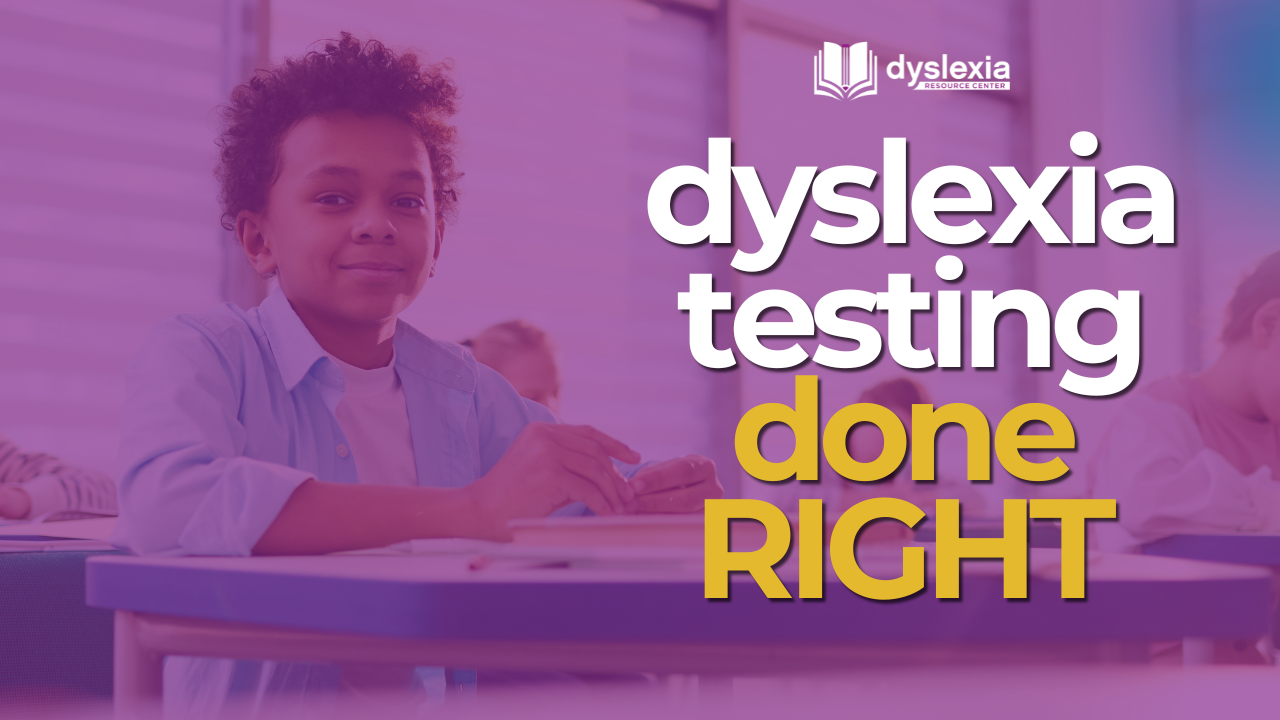
Quick Links
What is Dyslexia?
Dyslexia Services
WHO WE ARE?
The Dyslexia Resource Center was started by a group of concerned parents, medical doctors, and advocates who simply want everyone to know the truth about dyslexia, based on the most current science, and how that knowledge can translate into success in the classroom.
WHAT IS DYSLEXIA?
An unexpected difficulty in reading for an individual who has the intelligence to be a much better reader.
All Rights Reserved | Dyslexia Resource Center


